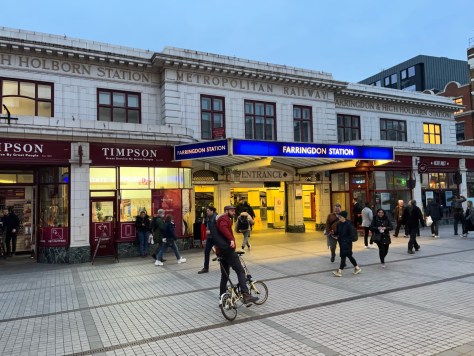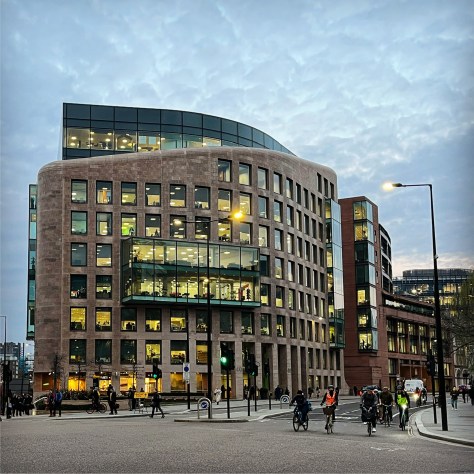
Well a busy week with travel, an in-person conference and some forward planning and road mapping.
Spent much of the week reflecting on digital transformation. What do we mean by it? What does it look like? Is it a something that happens, you transform, or is it something that continues over time?
Monday I was in Birmingham in preparation for Jisc’s Digifest. I had a fair few online meetings on Monday so had travelled up the night before. Didn’t really want to have long online calls from the services on the M5, or in a hotel foyer. Maybe in a coffee shop, but in the end decided a hotel room was better than all of those.
Tuesday was day one of Digifest 2022.

Two years ago I attended Digifest 2020 on what was the eve of lockdown. There was back then a murmuring that with the imminent restrictions that digital and online would play a huge part in supporting education. I don’t think we really recognised how hard it was going to be.
As I walked around Digifest 2022 it didn’t really feel that it had been only two years since the last time we had done it in in-person. We know that the pandemic isn’t over by any means, but not only has so much happened, but we also learnt many things as well.
This wasn’t my first in-person event since the lockdown, I had attended a Wonkhe event a few weeks ago. However it did feel quite surreal. I have written up my reflections on day one on another post.

Wednesday was the second day of Digifest, again I have written this up as well.
For me I did notice that there was a lot less usage of Twitter over the event, I don’t know if this is because it was less used during online events that we’ve forgotten how useful a back channel can be, or just a general decline in the use of Twitter because of the noise.

After the conference I travelled down to London.
There was a bit of a Twitter discussion about digital transformation following this tweet.
It got me thinking that we don’t really have a consensus on what digital transformation actually is and what it looks like.
I have spoken about this in meetings and events but I am now planning some blog posts on my thoughts.
Jisc does have the following guide on digital transformation. This is derived from the DX work of Educause.

I have some concerns about the linear nature of the definition, as though if you undertake digitisation, then digitalisation, you will then be able to deliver digital transformation. There is much more to the Educase work on transformation, but sometimes people focus on the simplistic interpretations that you see in a diagram.
I also asked on the Twitter:
Do you think transformation is something that has a result (we’ve been transformed) or do you see it as an evolving continuing process (we are transforming and continue to transform)?
There were mixed responses, some thought it was incremental, some thought it was a continual process, few thought thought of it as some kind of “big bang” transformation.
I think it can be incremental. But you still need some kind of vision or end game. Otherwise you may find you have changed but not transformed.
Another perspective is that you make incremental steps, but the full effect or possibilities isn’t immediately apparent. But at some point in the future it suddenly all makes sense.
I need to do some more thinking, research and reflection on this topic. One thing that does come immediately to mind, there is quite a bit out there on digital transformation, does this help, or what kind of help do universities need to undertake digital transformation.

I went to the Jisc office on Thursday and though there were people there it was quite quiet. When I went out for lunch it was a different matter. I’ve not seen London this busy since March 2020. There were so many people, and queues in all my favourite places for lunch.
I had a multi agency meeting on widening participation which was informative, interesting and useful.
Friday I was also in the Jisc office and spent time road mapping
My top tweet this week was this one.








































